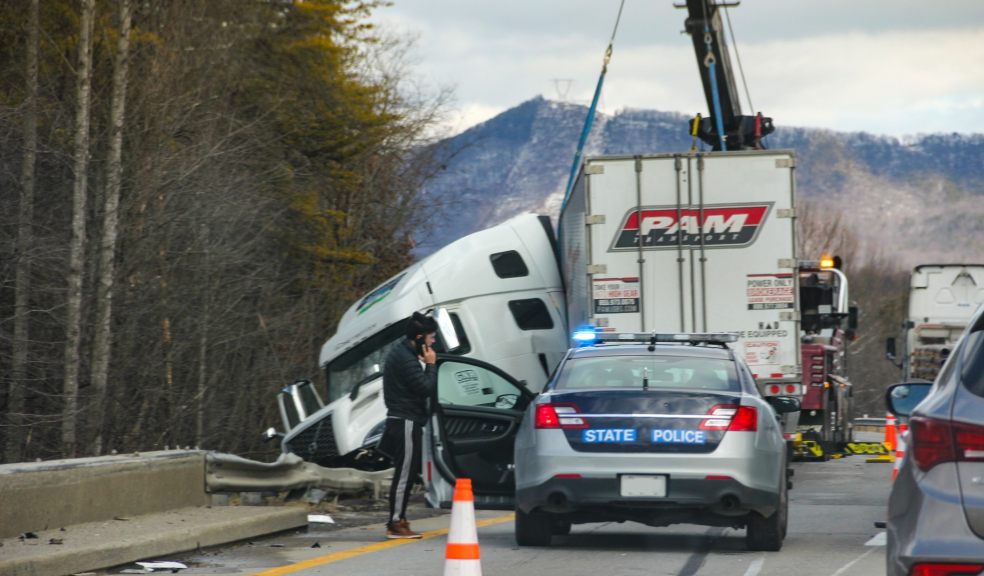
Key Details to Remember After an 18-Wheeler Accident
An 18-wheeler accident could have a multitude of outcomes and causes. This is why investigations are necessary to identify the causes and who is at fault. If an at-fault commercial driver isn't insured, the victim will have to get an attorney and start a legal claim against the at-fault driver.
Attorneys understand all the requirements for these cases and will provide the victims with a checklist of all items they need to get started. Medical evidence that shows the victim's accident injuries and estimates for all auto repair costs are just the beginning. Some victims will need to prove that they didn't contribute to the cause of the accident under comparative fault rulings and allegations.
Contacting Law Enforcement
After an auto accident, it is paramount that the victims contact law enforcement and report the accident. Officers will arrive on the scene and make assessments about the accident, including recording information from everyone who was involved in the accident and creating an account of what happened.
The details are used to create an accident report, and all parties involved must send a copy of the accident report to their insurance carrier. Victims who are involved in an accident with a truck need to contact an attorney promptly.
Identifying the Accountable Driver
It is critical for the authorities to identify who the accountable driver is and ensure that all victims are aware of this detail. At the scene of the accident, the victims must collect insurance information from the responsible driver to file a claim through their insurance provider. With a trucking accident, there could be several accountable drivers or other circumstances that caused the accident.
Investigating the Accident
The authorities will need to investigate the accident to find out all details. They must evaluate all drivers, especially the commercial driver, for illegal substances. It must be determined if the driver was exhausted when driving. Too often in trucking accidents, the drivers exceed their driving time and cause accidents. If they were under the influence of stimulants or illegal drugs, this could lead to criminal charges for the commercial driver.
Mechanical failures, improper maintenance, improper repairs, and uneven loads are common causes of accidents. During the investigation, the authorities will determine if there are any underlying causes related to the commercial vehicle and the driver.
Confirming Compliance With FMCSA Regulations
The Federal Motor Carrier Safety Administration issues regulations each year, and all commercial drivers must comply. There are driving restrictions that prevent the driver from operating their truck for more than 12 to 14 hours prior to taking at least an eight-hour rest period. The drivers must maintain a log of their driving schedule to show compliance. If a driver didn't comply, this makes them at fault if they cause an accident.
No commercial driver is allowed to take stimulants to stay awake when driving. They could lose their job if they test positive for these substances. The trucking company can also hold the driver liable for the accident.
Who Files an Insurance Claim?
The accountable driver must file an insurance claim for all parties they injured or caused damage to their property. The accident report can show which parties caused the accident and what parties that affected. If the responsible driver has insurance, they must file the claim with all victims' information to compensate them for their losses.
If the responsible driver doesn't have insurance, the victims will have to file a legal claim against the driver. The outcome of the case determines what compensation they receive if any. The victims must have evidence to support their legal claims.
What If the Victims Sustained Serious Injuries?
Serious injuries may require additional evidence from the victims, and a doctor must explain how the injuries affect the rest of the victim's life. If it is a permanent condition, the doctor must explain what treatment the victim needs and how often they will need it.
A traumatic brain injury may require treatment for many years, or the victim may need to be admitted to a nursing home. All these details must be disclosed to the court when seeking compensation. If the victim doesn't have the mental capacity to complete a legal claim, their family must file the lawsuit.
What Happens If Someone Dies?
If a victim dies as a result of their accident injuries, their family or heirs can file a lawsuit against the accountable driver. The trucking company would be the plaintiff if the commercial driver was at fault and working for the trucking company.
The victim's family would file a lawsuit against the driver and the trucking company. If the commercial vehicle was owned by an individual, they would file against the owner of the vehicle. The wrongful death lawsuit must show that the victim's death could have been avoided.
Did the Truck Driver Break the Law?
The law enforcement officers will also determine if the commercial driver broke the law during the time leading up to the accident. This could include being under the influence of drugs or alcohol, and the conditions for commercial drivers are more severe than they are for other drivers. Most states reduce the blood alcohol content reading to 0.04% for commercial drivers.
All drivers involved in a trucking accident will be tested if the officers suspect intoxication or that the drivers are under the influence of other substances. All commercial drivers involved in a trucking accident are tested for alcohol and controlled substances. Any driver under the influence will be charged with a DUI.
An 18-wheeler accident could produce serious if not life-threatening injuries, and if an at-fault driver isn't insured, the victims must file a legal claim to collect compensation. The circumstances of the accident are reviewed, and all trucking accidents are investigated by the authorities.
The cases could have more than one plaintiff if there are additional conditions that led to the accident. Trucking companies will have to file an insurance claim to cover the expenses of any victim involved in the accident that didn't contribute to the cause of the accident.













